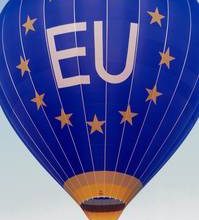EU ministers of labor and social affairs gather in Helsinki
Despite all the difficulties that the European Union is currently experiencing, Eurobarometer polls regularly conducted among Europeans show that confidence in the EU as a whole is growing. The last big study was done this spring. 29,220 people were interviewed between March 27 and May 1.
Two main conclusions that can be drawn from the survey: firstly, support for EU membership by citizens of EU member states has increased significantly, and secondly, public opinion does not support the further expansion of the Union. Vice President of the European Commission Margot Wallstrom claims that EU citizens expect the organization to ensure three main points: security, better labor market conditions and better quality of life. “These are issues that we should focus on during the EU presidency of Finland,” Wallstrom said.
Meanwhile, it was in Finland, which became the EU presidency in July for six months, that skepticism was very strongly expressed regarding EU enlargement. Only 39% of the Finns surveyed supported the enlargement, and only in Latvia and Austria were people more inclined towards EU enlargement.
In general, EU support increased by 5% compared to the fall of 2005 (from 50% to 55%). As for the candidate countries surveyed, significant changes occurred in Turkey, where the positive image of the EU catastrophically fell from 60 to 43 percent . Europeans consider unemployment to be the main problems (49%, five more than last fall), crime – 24%, the general economic situation – 23% and the situation in the healthcare system – 18%.
Support for the EU’s general constitution fell by 2% (to 61%). 22% are against its adoption and 17% have no opinion on this matter. The “problem” countries – France and the Netherlands, which rejected the draft constitution in referenda, now have 62% and 59% respectively for its adoption. As for confidence in individual European institutions, the European Parliament remains the weakest link here. Europeans trust the European Commission much more.
The survey revealed rather large differences between the opinions of the people, on the one hand, and the opinions of political elites and business circles, on the other. The elites, as confirmed by the speech of Finnish Prime Minister Matti Vanhanen regarding the start of his country’s presidency in the EU, continue to insist on the benefits of EU enlargement, while public opinion believes that the expansion should be suspended. Only 45% of EU citizens support continued expansion (which is 4% less than in the fall of 2005), and 42% are against (3% more).
In a speech to the Finnish presidency in the European Parliament, European Commission President Jose Manuel Barroso praised the leadership of Finland for the expansion expressed by Vanhanen. Barroso said: “Enlargement is one of the most successful policies of the EU, it is an outstanding achievement in the export of freedom and opportunity on our continent. Many of us here and now benefit from this policy. We must be proud of our expansion policy. ”
In the same speech, the President of the European Commission specifically mentioned Turkey, which is expected in the EU, but which must first fulfill the conditions for accession, according to the protocol signed in Ankara, and Russia – in connection with the Northern Dimension, a large-scale project that was initiated at the time Finland.
This post is also available in:
 English
English  Русский (Russian)
Русский (Russian)





